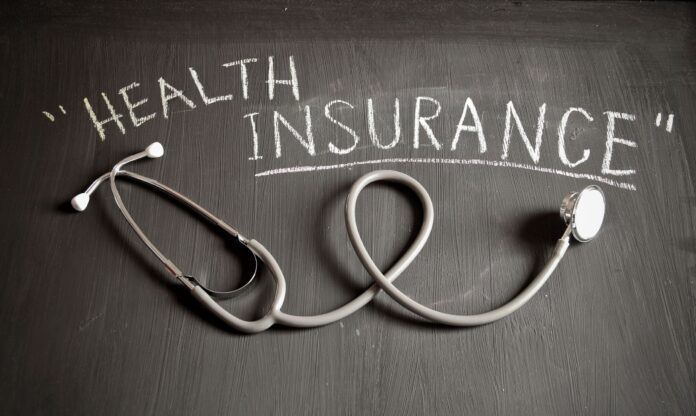Starting this year, employers can now offer employees an alternative to traditional group health insurance plans. Individual Coverage Health Reimbursement Account (ICHRA) allow individuals to pick their own health plan, but this year, the rollout has been overshadowed by the pandemic crisis. Health Care News talked to Bill Sweetnam, the technical and legislative director at the Employers Council on Flexible Compensation about the prospects for ICHRAs and if they are still on tap for being a potential disrupter in the health insurance market.
Health Care News: First, tell us how ICHRAs have the potential of revolutionizing the health insurance market.
Sweetnam: If an employer puts money into an ICHRA, the employee can use that money and go out into the marketplace and buy a health insurance on the individual market. This has the potential for making this market more competitive because employers are now providing financial assistance to employees purchasing insurance in the individual market. This is a big change from what existed under the Affordable Care Act. HRAs existed before the ACA but under ACA, employer plans could not have annualized or lifetime limits on employer coverage and preventive care must be provided at no cost to the employee. That struck at the heart of a traditional HRA because these were fixed accounts and once you used them up, no further reimbursements for medical care were available, regardless of whether the expense was for preventive care. Traditional HRAs that were integrated with employer provided health insurance coverage and retiree-only HRAs continued to be allowed under the ACA.
Health Care News: When it announced new rules for ICHRAs last year, the Trump Administration projected ICHRAs ultimately cover 11 million workers, including new coverage to 800,000 working Americans who do not have employer insurance. Who are these employers?
Sweetnam: An employer could decide it was going to stop offering individual health insurance all together and offer these ICHRAs so that employees could purchase individual health coverage with the funds the employer provided through the ICHRA. Now that is a big change in how employers provide health insurance. There are also employers who don’t currently offer insurance to certain groups, like part-time or seasonal workers. While an employer may not be required to offer health insurance to these groups, they may want to offer the ICHRA to become a more attractive employer.
I’m not sure if employers who are currently offering health insurance will drop insurance coverage and switch over to ICHRAs. Employers could have done this under ACA because there was now an exchange where people could get subsidized insurance and we didn’t see that happen.
This is giving some new impetus to employers to offer something to workers who didn’t have any coverage.
Health Care News: HRAs became effective on January 1. What has been the response so far?
Sweetnam: We don’t have a lot of data yet. The unfortunate thing is the rollout happened during a time when employers are dealing with the issues related to Covid-19. Examining the types of coverage you’re going to provide is not on top of most employers’ radar screens right now.
The other thing, as with any employee benefit program focused on small employers, these programs are sold, rather than bought. There are lots of incentives for small employers to take advantage of ICHRAs, but when it comes down to it, it is up to brokers and actuaries to sell it. We saw this at first with 401k’s as a retirement benefit; there were incentives for small employers to offer these plans, but there has been slow take-up. The same thing needs to happen in the health care market. Small businesses are busy running their business not worrying about health insurance. Small business organizations will also need to push the idea it as well so that small business understand the opportunity available with ICHRAs.
One problem may be compensation. With an ICHRA, the major challenge is administering the accounts and reimbursing the premiums paid by participants. Not all brokers are equipped do that and not all HRA administrators are brokers. The marketing pipeline is different for this than traditional health insurance.
Is it fair to call an ICHRA a 401k plan for health insurance? In some ways it is since the employee has to learn what is out there in the insurance market and pick it themselves—much like they invest the funds they contribute to their 401(k) plan. And that is not always easy.
Health Care News: Yes, in other words, will employees balk? Are there enough affordable and attractive plans on the individual market to make this a good benefit? Unlike Health Savings Accounts or Flexible Savings Arrangement, HRAs must be spent on an ACA compliant health insurance plan. Employees don’t get to keep the money if they decide to pass. Is that correct?
Sweetnam: Yes, the employee can only use the money on health insurance and, once they have insurance, they can only use that money to be reimbursed for qualified health expenses.
I’m not sure about the insurance options available now but the individual market could change as more people get health insurance this way. The Trump Administration has been very proactive on short-term limited disability plans, but they would not work in this situation.
For the money to be spent for anything other than health insurance and qualified health expenses, there would need to be a legislative change for that. In this legislative environment, it may be difficult to get a majority to push for a change like this to the employer-provided health care system.









